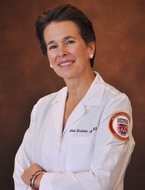Does formal mentoring for faculty members matter? A survey of clinical faculty members Journal Article
Local Library Link: Find It @ Loyola
| Authors: | Mylona, E; Brubaker, L; Williams, V. N.; Novielli, K. D.; Lyness, J. M.; Pollart, S. M.; Dandar, V.; Bunton, S. A. |
| Article Title: | Does formal mentoring for faculty members matter? A survey of clinical faculty members |
| Abstract: | BACKGROUND: Mentoring relationships, for all medical school faculty members, are an important component of lifelong development and education, yet an understanding of mentoring among medical school clinical faculty members is incomplete. This study examined associations between formal mentoring relationships and aspects of faculty members' engagement and satisfaction. It then explored the variability of these associations across subgroups of clinical faculty members to understand the status of mentoring and outcomes of mentoring relationships. The authors hypothesised that academic clinical faculty members currently in formal mentoring relationships experience enhanced employee engagement and satisfaction with their department and institution. METHODS: Medical school faculty members at 26 self-selected USA institutions participated in the 2011-2014 Faculty Forward Engagement Survey. Responses from clinical faculty members were analysed for relationships between mentoring status and perceptions of engagement by faculty members. RESULTS: Of the 11 953 clinical faculty respondents, almost one-third reported having a formal mentoring relationship (30%; 3529). Most mentored faculty indicated the relationship was important (86%; n = 3027), and over three-fourths were satisfied with their mentoring experience (77%; n = 2722). Mentored faculty members across ranks reported significantly higher levels of satisfaction and more positive perceptions of their roles in the organisation. Faculty members who were not receiving mentoring reported significantly less satisfaction with their workplace environment and lower overall satisfaction. CONCLUSIONS: Mentored clinical faculty members have significantly greater satisfaction with their department and institution. This multi-institutional study provides evidence that fostering mentoring opportunities may facilitate faculty members' satisfaction and engagement, which, in turn, may help medical schools retain high-quality faculty staff committed to the multidimensional academic mission. |
| Journal Title: | Medical education |
| Volume: | 50 |
| Issue: | 6 |
| ISSN: | 1365-2923; 0308-0110 |
| Publisher: | Wiley Periodicals, Inc |
| Journal Place: | England |
| Date Published: | 2016 |
| Start Page: | 670 |
| End Page: | 681 |
| Language: | eng |
| DOI/URL: | |
| Notes: | CI: (c) 2016; JID: 7605655; 2015/08/07 [received]; 2015/10/07 [revised]; 2015/11/13 [accepted]; ppublish |
LUC Authors
-
 144
144Brubaker
Related LUC Article
